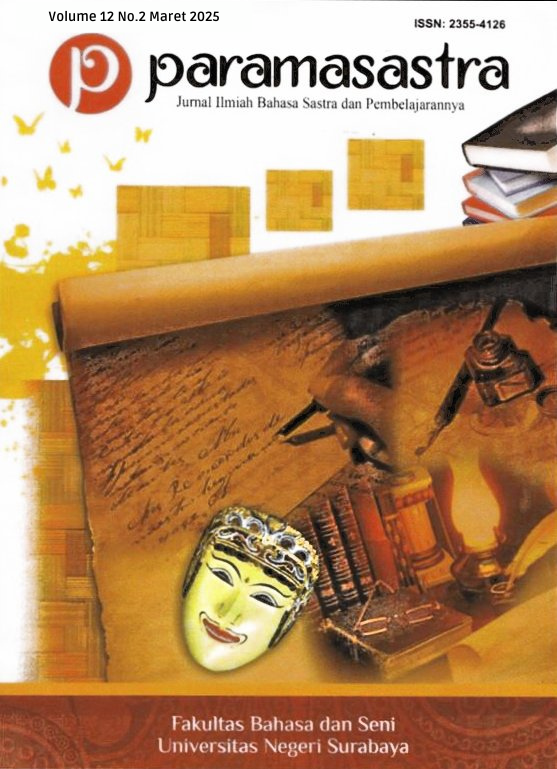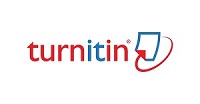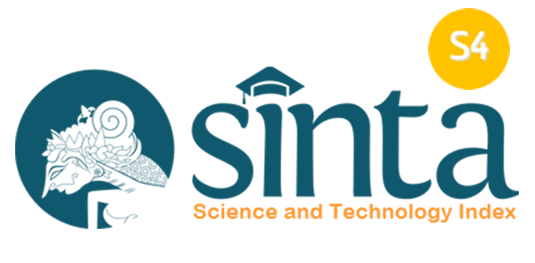Teaching Reading Differently: Exploring Indonesian PPG Graduates’ Strategies and Barriers in Differentiated Assessment Implementation
DOI:
https://doi.org/10.26740/paramasastra.v12n2.p315-335Keywords:
Differentiated Assessment, Reading Instruction, PPG Graduates, Assessment LiteracyAbstract
Abstract
This research is aimed to explore the practice of Differentiated Reading Assessment (DRA) in the classroom implementation conducted by PPG (Pendidikan Profesi Guru) (Pre-Service Teacher-Professional Education) graduates in Indonesian junior high schools along with their applied classroom strategies and encountered problems. A qualitative case study was employed in data collection from class observations, lesson plan examination and semi-structured interviews. Results indicate four large strategies teachers used to develop these practices: flexible grouping, choice of text and response modality, tactics for multimodal and culturally responsive assessments, and formative feedback. However, such pedagogical strategies were hampered by systemic and institutional barriers such as time pressure, resource shortage, deficit of assessment literacy and policy drivers focused on standardized testing. The study calls for systemic reform which includes improved teacher training, greater curricular flexibility, funding for instructional materials, and supportive administrative leadership. These changes are necessary to ensure sustainable DRA application and to create more equal and inclusive classrooms across Indonesian schools.
Keywords: Differentiated assessment, reading instruction, PPG graduates, assessment literacy.
References
Afriadi, B., Tola, B., & Triana, D. D. (2022). Evaluation of the implementation of teacher professional education in Indonesia. International Education Trend Issues, 1(1), 1–9. https://doi.org/10.56442/ieti.v1i1.111
Al-Akbari, S. (2023). Developing language assessment literacy of teachers: Needs, challenges, and strategies. Asian EFL Journal, 25(4), 112–130.
Alderson, J. C. (2000). Assessing reading. Cambridge University Press.
Anderson, L. W., & Krathwohl, D. R. (2001). A taxonomy for learning, teaching, and assessing: A revision of Bloom's taxonomy of educational objectives. Longman.
Black, P., & Wiliam, D. (1998). Inside the black box: Raising standards through classroom assessment. Phi Delta Kappan, 80(2), 139–148.
Blaz, D. (2023). Differentiated assessment strategies: One tool doesn’t fit all. Routledge.
Bronfenbrenner, U. (1979). The ecology of human development: Experiments by nature and design. Harvard University Press.
Brown, H. D., & Lee, H. (2015). Teaching by principles: An interactive approach to language pedagogy (4th ed.). Pearson Education.
Carless, D. (2007). Learning-oriented assessment: Conceptual bases and practical implications. Innovations in Education and Teaching International, 44(1), 57–66. https://doi.org/10.1080/14703290601081332
Chien, C. W. (2015). Analysis of language teachers’ beliefs and practices regarding differentiated instruction: A qualitative study. Cogent Education, 2(1), 1–18. https://doi.org/10.1080/2331186X.2015.1029985
Dhakal, R. (2021). Differentiated instruction in diverse classrooms: Challenges and strategies. Journal of Educational Research and Practice, 11(2), 45–58.
Fulcher, G., & Davidson, F. (2007). Language testing and assessment: An advanced resource book. Routledge.
Gardner, H. (1999). Intelligence reframed: Multiple intelligences for the 21st century. Basic Books.
Marlina, M., Sari, D. P., & Hidayat, T. (2023). Implementing differentiated instruction to enhance students’ learning outcomes. Journal of English Language Teaching and Linguistics, 8(1), 110–125.
Marlina, L., Setiawan, D., & Hidayat, D. N. (2023). Differentiated instruction strategies for EFL classrooms in Indonesia. Journal of Language Teaching, 45(2), 67–79. https://doi.org/10.1234/jlt.v45i2.56789
OECD. (2005). Formative assessment: Improving learning in secondary classrooms. OECD Publishing.
Tomlinson, C. A. (2014). The differentiated classroom: Responding to the needs of all learners (2nd ed.). ASCD.
Tomlinson, C. A., & Moon, T. R. (2020). Assessment and student success in a differentiated classroom (2nd ed.). ASCD.
Vygotsky, L. S. (1978). Mind in society: The development of higher psychological processes. Harvard University Press.
Wiggins, G., & McTighe, J. (2005). Understanding by design (Expanded 2nd ed.). ASCD.
Yulianti, K., & Nugroho, A. (2020). Teacher agency and curriculum reform in Indonesia: A policy-practice disconnect. Asia Pacific Journal of Education, 40(2), 203–216. https://doi.org/10.1080/02188791.2020.1717448
Zhao, Y. (2012). World class learners: Educating creative and entrepreneurial students. Corwin Press.
Downloads
Published
How to Cite
Issue
Section
 Abstract views: 129
,
Abstract views: 129
, PDF Downloads: 129
PDF Downloads: 129












